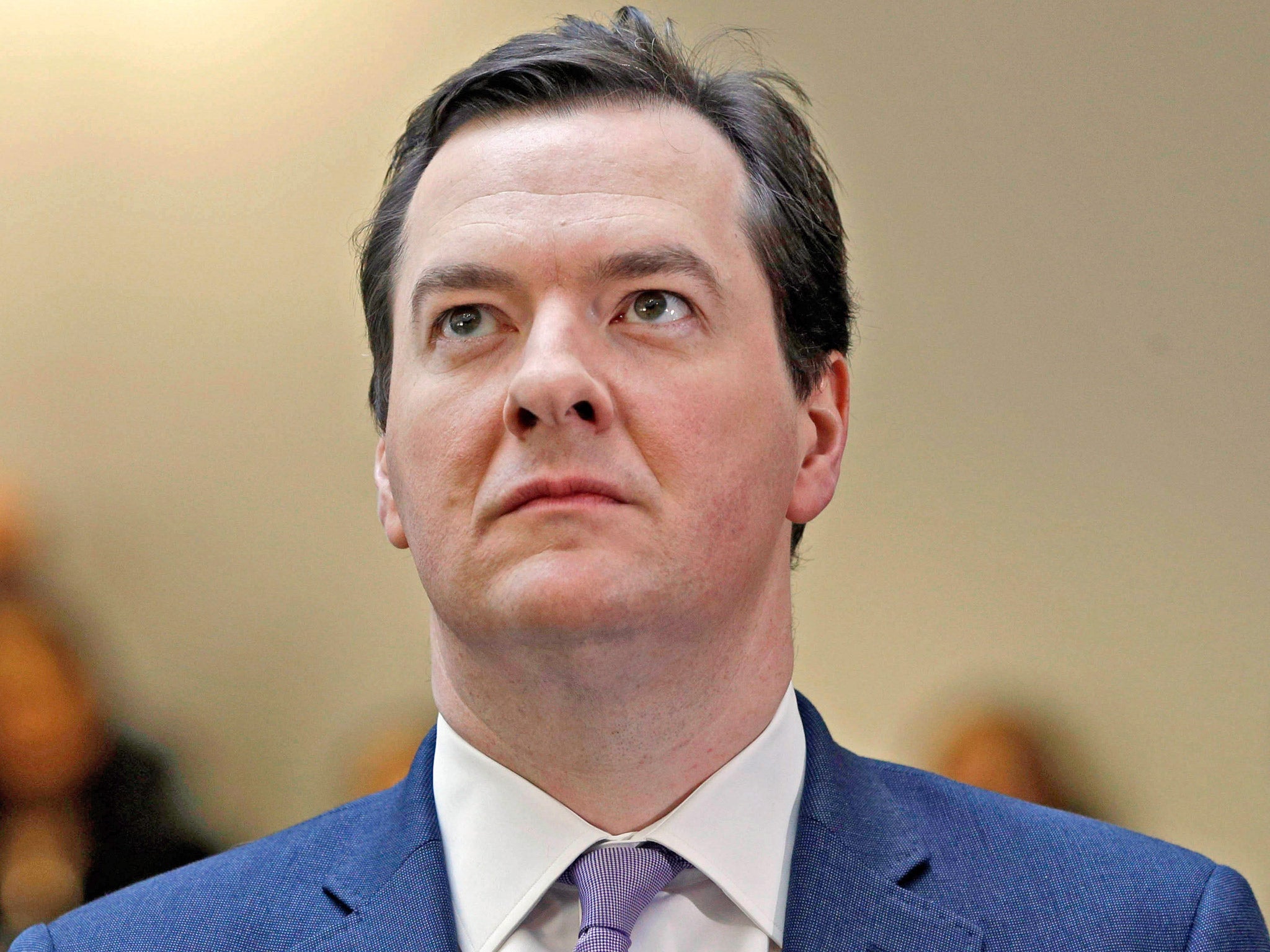George Osborne braced for IMF challenge over austerity plans
Critical verdict could leave Chancellor isolated as the global consensus appears to turn against austerity

Your support helps us to tell the story
From reproductive rights to climate change to Big Tech, The Independent is on the ground when the story is developing. Whether it's investigating the financials of Elon Musk's pro-Trump PAC or producing our latest documentary, 'The A Word', which shines a light on the American women fighting for reproductive rights, we know how important it is to parse out the facts from the messaging.
At such a critical moment in US history, we need reporters on the ground. Your donation allows us to keep sending journalists to speak to both sides of the story.
The Independent is trusted by Americans across the entire political spectrum. And unlike many other quality news outlets, we choose not to lock Americans out of our reporting and analysis with paywalls. We believe quality journalism should be available to everyone, paid for by those who can afford it.
Your support makes all the difference.George Osborne's austerity programme faces a major challenge today when a team from the International Monetary Fund (IMF) arrives in Britain to conduct its annual "health check" on the economy.
Treasury officials will defend the Chancellor's Plan A. But there is growing concern among ministers that the IMF will make its most explicit call for the spending cuts to be slowed at the end of its two-week visit. Mr Osborne would almost certainly reject such a verdict and plough on with Plan A. But, as the global consensus appears to turn against austerity, he might be left looking increasingly isolated.
The Chancellor suffered a setback last night when an analysis by the Trades Union Congress (TUC) found that Britain's recovery is slower than 23 of the 33 advanced economies monitored by the IMF, suggesting the UK is trailing in the "global race" trumpeted by David Cameron. It found that income per head will not return to pre-crash levels until 2017. In contrast, in the United States and Germany, income per head will be more than 10 per cent higher a decade after the financial crisis.
Among the G7 nations, only Italy has a slower recovery that the UK. The TUC said Mr Osborne could no longer blame the country's woes on the eurozone, because the vast majority of its member states are performing better. The IMF's conclusions will be given before its team departs by David Lipton, a former adviser to President Barack Obama who – ominously for the Treasury – is seen as a Keynesian. Until recently, Christine Lagarde, the IMF managing director, has provided valuable cover for the Coalition's cuts. But last month the IMF called for greater flexibility because the economy is still flatlining.
Treasury officials will tell the IMF delegation that the Government has already shown such flexibility by spreading deficit-reduction over a longer period than originally planned. Officials will say the programme is in line with IMF targets and that the IMF should be "consistent" – pointing out that it has not called for a change of course in countries with weaker growth such as France and the Netherlands. The Treasury will argue that the 0.3 per cent growth in the first three months of this year is higher than the IMF predicted.
But Chris Leslie, a Labour Treasury spokesman, said: "George Osborne should not arrogantly dismiss the advice of the IMF team. It's time the Chancellor listened to their warnings that his failing economic policies are playing with fire and that Britain now needs a Plan B for jobs and growth."
He added: "The TUC analysis shows that in the global race David Cameron is so fond of talking about, Britain is falling behind as our competitors move ahead. The slowest recovery for 100 years means living standards are falling, the deficit is not coming down and long-term damage is being done."
Frances O'Grady, the TUC general secretary, said: "The Chancellor's commitment to self-defeating austerity has prolonged people's suffering and put the brakes on our economic recovery – so much so that escaping a triple-recession is considered by some to be a cause for celebration."
A Treasury source said: "This is an own goal by Labour's paymasters. This analysis starts in 2008 and so includes the biggest recession in modern history – which happened under Labour. Clearing up the mess we inherited won't happen overnight."
Join our commenting forum
Join thought-provoking conversations, follow other Independent readers and see their replies
Comments